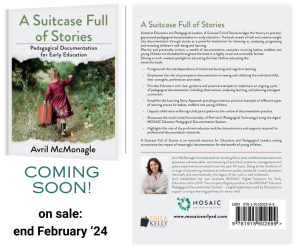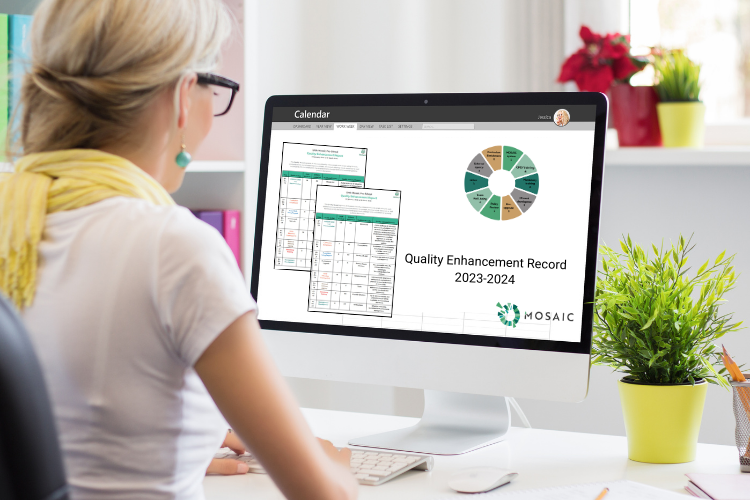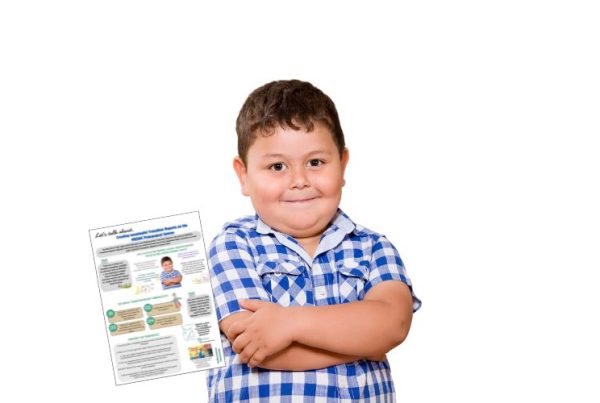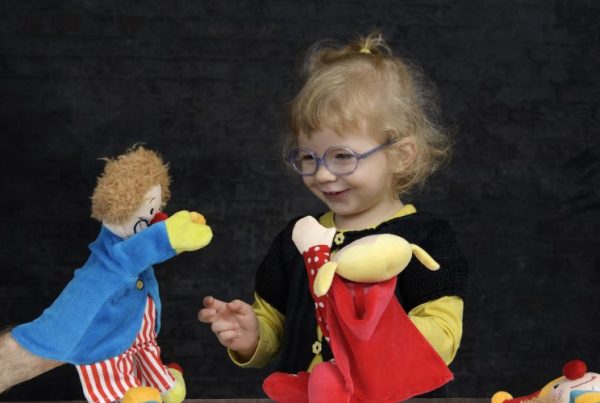When is Quality not Quality?
The new ‘Quality Enhancement’ recording function on the MOSAIC Pedagogical Documentation System is now in full swing. Its launch in early February has been greeted with the enthusiasm you would expect from Managers and Educators who strive to maintain and develop quality experiences for children.
As Ireland’s only completely child-focussed pedagogical documentation system, the inclusion of the Quality Enhancement Record adds another dimension to the already comprehensive educator tool that includes assessment for learning, transitions and emergent planning as only some of its features.
The development of the MOSAIC Quality Enhancement Record is underpinned by the idea that quality is not measured by narrow predetermined options, which are the same for all settings. Early childhood services using the MOSAIC platform are able to plan and record a wide range of quality actions over any period.
The digital and downloadable record takes a more expansive and continuous approach to quality practice. This is based on the belief that each setting is unique – regarding children, staff, setting size, time in business, management structure and so on. This in turn means that a Quality Plan should be distinctive to the setting, and responsive to the needs of all stakeholders.
For example, to provide an equitable learning environment for all children, an unforeseen adaptation may be needed. Or a staff well-being event may be used to motivate and refresh educators, leading to better outcomes for children.
Managers can record an array of quality actions as they occur over the year, the numbers of staff involved and the number of children who directly or indirectly benefit. This builds a meaningful, well-rounded, and accumulative view of quality enhancement unique to the setting.
Early childhood services using MOSAIC can include the use of this child-led pedagogical tool as a quality enhancement action. How is this evidenced? Well, the MOSAIC application enables educators to create an individualised educational and care pathway for every child in digital format. Educator time will be used more efficiently, paper and printing resources are saved, and family are engaged in real time. In addition, systematic, evidence-based documentation will underline quality practice for visiting agencies.
To finish, care is needed to ensure that Quality Action Planning as a requirement of Core Funding does not turn into a tick box exercise, suffocated by an avalanche of administration requirements. Recognition must be afforded to early childhood settings that adopt a progressive and broader approach to meaningful quality enhancement – in all its forms.
About the Author:
Avril McMonagle is Founder and CEO of MOSAIC Digital Solutions for Early Education which provides a range of child centred digital products, training and quality compliance supports for early childhood services and stakeholders. For more see www.mosaicearlyed.com; email [email protected] and follow us on social media @mosaicearlyed
Additional information: MOSAIC is a multi-modal child documentation system that captures the learning, development and care of children of up to a five-year period in early education. It is the only application on the market in Ireland exclusively dedicated to the child and their unique educational pathway regardless of age or ability. The mobile and web-based system facilitates evidenced based pedagogical documentation including assessment for learning and emergent planning based on the needs of the individual child. The sharable platform enables collaborative partnerships in early learning involving the child, educator and family. https://mosaicearlyed.com/services/mosaic-educator-family-apps/





